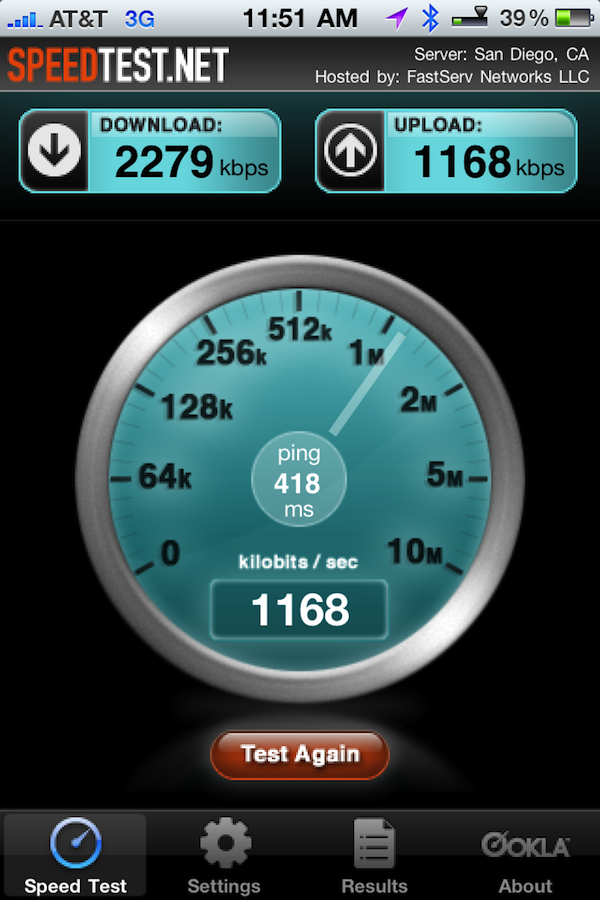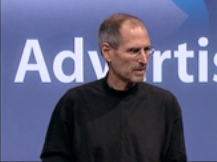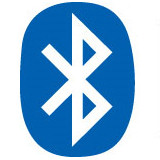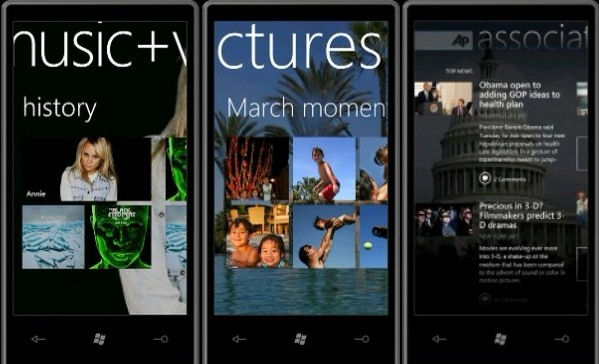
Borders launches e-book store, expects 17 percent share by 2011
Borders said Wednesday that it had launched its own branded e-book store, offering about 1.5 million titles in a variety of formats. The move follows the successful launch of the Kobo and Aluratek e-readers, which have surpassed sales expectations.
The e-book store will be powered by Kobo, which also has created Border's iPhone and iPad apps. Versions for the BlackBerry and Android platforms were also made available Wednesday. All three platforms are free downloads from their respective application stores.

Motorola announces Charm, the first BlackBerry-like Android device
Google's Android mobile operating system has been released on many different types of devices, but since it is a touch-based OS, pretty much every device has been a so-called "touchphone," a device built around its screen.
But Motorola has been thinking outside of the box with Android, and has released several models that break out of the traditional touchphone form factor. Today, it has ventured even further outside of the touchphone realm and announced a new device that looks very little like any other Android device, the Charm.

CounterPath significantly updates Bria softphone for Windows, Mac
Vancouver-based telecommunications software company CounterPath today announced the availability of Bria 3.1 for both Windows and Mac OS, the latest edition of the company's desktop softphone capable of voice calling, high-definition (1280x720p) video calling, and instant- or SMS-based messaging.
Today's update improves Bria's usability in enterprise settings in a number of ways. Firstly, by including support for a much broader range of infrastructure equipment from major vendors like Alcatel-Lucent, Cisco, and NEC. Secondly, and perhaps more importantly, support for multiple accounts has been added, and users can now select on the fly which account to use for voice, IM and HD video calling.

Mozilla releases Beta 1 of new, visually overhauled Firefox 4 browser
Download Firefox 4 Beta 1 for Windows from Fileforum now.
Mozilla's popular Firefox web browser has just been released in Beta 1, which introduces a new graphical design for Windows users, support for the HD HTML5 video tag using the WebM format, a new Add-ons manager for all of your Add-ons, Plug-ins, and Themes, improved crash protection and security fixes, and an overall performance upgrade.

Google's Chrome OS getting orientation-aware capabilities
As Google moves toward a release of its web-based Chrome OS later this year, developers are building applications with the ability to detect which way their host device is orientated.
The functionality mimics the screen-swapping action that is becoming a regular feature in today's mobile devices; where motion sensors provide added levels of interactivity. The potential uses are many: such as the obvious switching the interface from portrait to landscape mode, or in gaming where on-screen actions are controlled by the device's position.

Microsoft launches beta of free website development tool WebMatrix
Today, Microsoft has begun beta testing a free and lightweight development tool for the ASP.NET web application framework called WebMatrix.
WebMatrix includes all of the essential tools for building, installing, and running a website in Windows for free and in a package less than 50MB in size. These tools include IIS Developer Express for building and testing ASP.NET sites and applications, SQL Server Compact Edition 4 database engine (which works with .NET-based data APIs and ASP.NET Web apps,) and the ASP.NET programming framework.

AT&T isn't capping 3G data uploads in my neighborhood
There was a whole lot of buzz over the last couple days about AT&T capping uploads over its 3G network. I decided not to post on the topic, because I had a pretty good idea why AT&T subscribers were seeing slower data uploads: The Fourth of July.
Let's use Occam's Razor for just a moment here. Is it more likely that data slowed down because of some grand AT&T conspiracy or that a larger number of people accessed the network over a long holiday weekend? Network congestion is more likely reason than evil, bastard AT&T executives conspiring to throttle down everyone's upload speeds. C`mon get a life, and a little common sense.

Sorry, Steve Jobs, search is happening on smartphones
Today, Compete put to shame Apple CEO Steve Jobs' ridiculous April assertion that "search is not happening on phones." According to the analyst firm, search is indeed happening on mobile phones, and, as I'll explain, it's one major reason why Android has a strategic competitive advantage over iPhone.
Compete announced release of its "Smartphone Intelligence" report, which I have requested copy (After I posted, a Compete spokesperson e-mailed that "we cannot send you the report." But Compete provided additional data that I later incorporated below). Compete asserts that during first quarter, Android and iPhone users discovered two or more new local businesses via search. The keyword is local.

Netflix and Relativity Media deal will bring new movies to Instant streaming faster
This morning, Netflix announced that it has signed an agreement with Relativity Media that will bring new releases to Netflix Instant streaming at the same time as they are released to pay TV services like HBO, Showtime, and Starz.
The first new releases that will be covered in the deal between Relativity and Netflix will be Paramount Pictures' "The Fighter," and Universal Studios' "Skyline," Rogue Pictures' "Season of the Witch" and "Movie 43."

US Government gets into the mobile application business
In an effort to appease the changing information consumption habits of its citizens, the Obama Administration this past holiday weekend launched an "app store" of its own, featuring 16 apps on a variety of subjects. While some are mobile websites available for any mobile phone, others are actual apps intended for a specific platform such as BlackBerry, Android, or iPhone.
It should be noted that many of these applications are not new: most have been available on an agency or department's website for some time now. The Administration decided that building a centralized location for them would increase visibility.

Bluetooth 4.0 core specification released
The earliest Bluetooth 3.0-capable devices may have only begun appearing this year, but the Bluetooth Special Interest Group is already advancing the short-range wireless standard by rolling out the core specification of version 4.0 today.
Bluetooth 3.0 introduced an Enhanced Data Rate mode which allowed higher throughput for faster file transfers between devices. Using a technique called AMP, compatible Bluetooth 3.0 radios could establish device-to-device 802.11 Wi-Fi connections for transfer speeds up to 24 Mbps. The basic rate for Bluetooth file transfers is only 721.2 Kbps.

LG finally begins stronger Android push, promises at least 4 more phones, tablet in 2010
According to first quarter 2010 statistics from research firm Gartner, LG remains the third highest selling mobile handset brand with an 8.6% market share. But to remain competitive, the company is taking some bigger actions in the Android space.
As the second largest mobile phone maker in the Open Handset Alliance, LG has remarkably few Android-powered handsets. Six months after pledging to make Windows Mobile its primary smartphone OS, LG debuted its first Android handset, the GW620. Since then, it has only launched two other Android devices.

Apple still silent as more scams are found on App Store
The App Store may have an increasing scam problem thanks to shady developers, but so far Apple has yet to provide any official response on the issue. First reported on by The Next Web Sunday, several developers appear to be using methods to hack into user accounts and make more purchases of a particular developer's apps.
Developer Thuat Nguyen appears to be one of the first widespread examples of this. His apps in the books category at one point made up 40 of the top 50 applications, and users have reported in his comments that purchases of as much as $600 were made on their iTunes accounts without authorization, typically to his other apps.

5 things Microsoft should do to save Windows Phone
Friday's apocalyptic post "Windows Phone 7 is doomed" generated among comments assertions that I'm an idiot and demands that I be fired (Sorry, I'm a lowly freelancer). Nevertheless, I do read comments and seriously regard the ones written to extend the discussion (rather than just belittle the author or other commenters). Commenter rwalrond asked: "How about you write an article about how Microsoft can leverage its existing platforms to make WM7 a contender." Actually, Microsoft's trying to leverage its enterprise apps is part of the problem -- the Office and Windows hawks driving off the consumer and cloud service doves. But the spirit of rwalrond's comment is offering solutions, and that I will do here in response.
I don't want to open up a religious debate here, but the Biblical accounts of Nineveh and Sodom and Gomorrah are good metaphors for my "doom" proclamation and Microsoft's mobile future. In that context, I'll call my "Windows Phone 7 is doomed" assertion a prophecy. If Microsoft repents of its wicked ways, the company could end up like the Biblical account of Nineveh, which was spared destruction even after its doom was prophesied. The citizens of Sodom and Gomorrah didn't repent and, according to the Biblical account, they were burned with fire and brimstone. To reiterate: I don't want to open up a debate about God, the authenticity of the Bible or people's lifestyles (why these cities were targeted for destruction). I'm trying to say that Windows Phone 7 doesn't have to be doomed, if Microsoft is willing to radically change its behavior. I don't see much hope in that, particularly given how fast the mobile market is changing and how quickly upstarts Apple and Google are gaining market share and consumer and developer mindshare. So I'm sticking with "doomed," but hoping to be proved wrong.

Petitioners want Skype-like Google Voice desktop client
In November 2009, Google acquired IP telephony software company Gizmo5 and all of its engineers and products. The company's robust desktop Voice over IP client for Windows, Mac OS, and Linux seemed like an excellent extension of the Google Voice platform, which at the time was a Web application and related mobile app for BlackBerry and Android.
Since that time, Google Voice has had its official U.S. launch and it is still a mobile app and Web-based management system. There is no standalone desktop application to accompany it.



